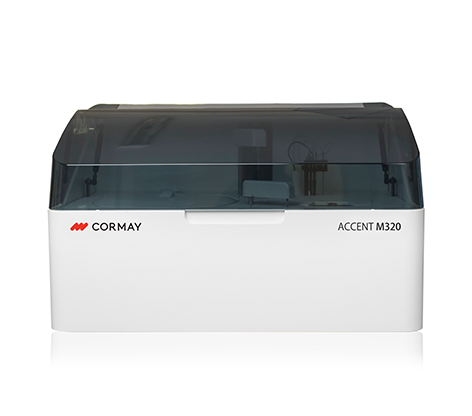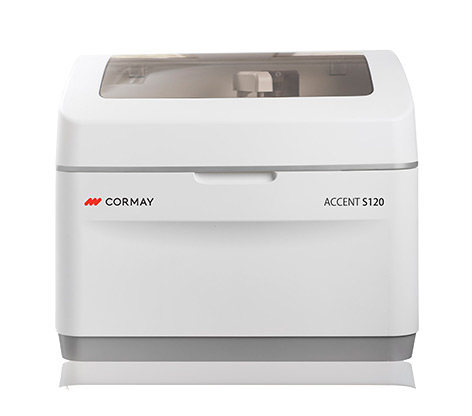TOTAL PROTEIN
Determination of total protein level in serum and plasma os used to diagnose and monitor clinical conditions associated with abnormal proteins concentrations. Increased total protein level can be observed in multiple myeloma, Waldenström's macroglobulinemia, dehydration, hyperimmunoglobulinemia caused by polyclonal or monoclonal gammopathies, acute phase response. Decreased values can be observed in malnutrition, malabsorption, liver diseases (cirrhosis, fulminant failure), kidney diseases, protein-losing gastroenteropathies and acute burns.
Specification
|
Method |
colorimetric, biuret reaction |
|
Specimen |
serum, plasma |
|
On board stability |
up to 9 weeks |
|
Calibration stability |
up to 9 weeks |
|
Measuring range |
0,06-21,0 g/dl |
|
Regulatory status |
CE IVD |
Reagent lines
Multipurpose Line
Liquick Cor-Total Protein 30
Liquick Cor-Total Protein 60
Liquick Cor-Total Protein 120ACCENT-200
ACCENT-300
A-400
A-800
Prestige 24i
Prestige 24i LQ TOTAL PROTEIN (24 positions reagent tray)
Prestige 24i LQ TOTAL PROTEIN (36 positions reagent tray)B50
OS
HC
Panels: hepatic, routine screening, nutritional, pediatric screening
Available reagents
A-800 TOTAL PROTEIN
ACCENT-200 TOTAL PROTEIN
ACCENT-300 TOTAL PROTEIN
B50-TOTAL PROTEIN
HC-TOTAL PROTEIN
LIQUICK COR-TOTAL PROTEIN
OS-TOTAL PROTEIN
PRESTIGE 24i LQ TOTAL PROTEIN
The specification was based on data determined on selected analyzers. We recommend that all users should refer to the instruction for use (IFU) and instruments’ user or service manuals before proceeding.

Order this product
To order this product, please contact your Area Sales Manager for details. If you have any questions, click the button below and fill out the form. We will contact you as soon as possible.


